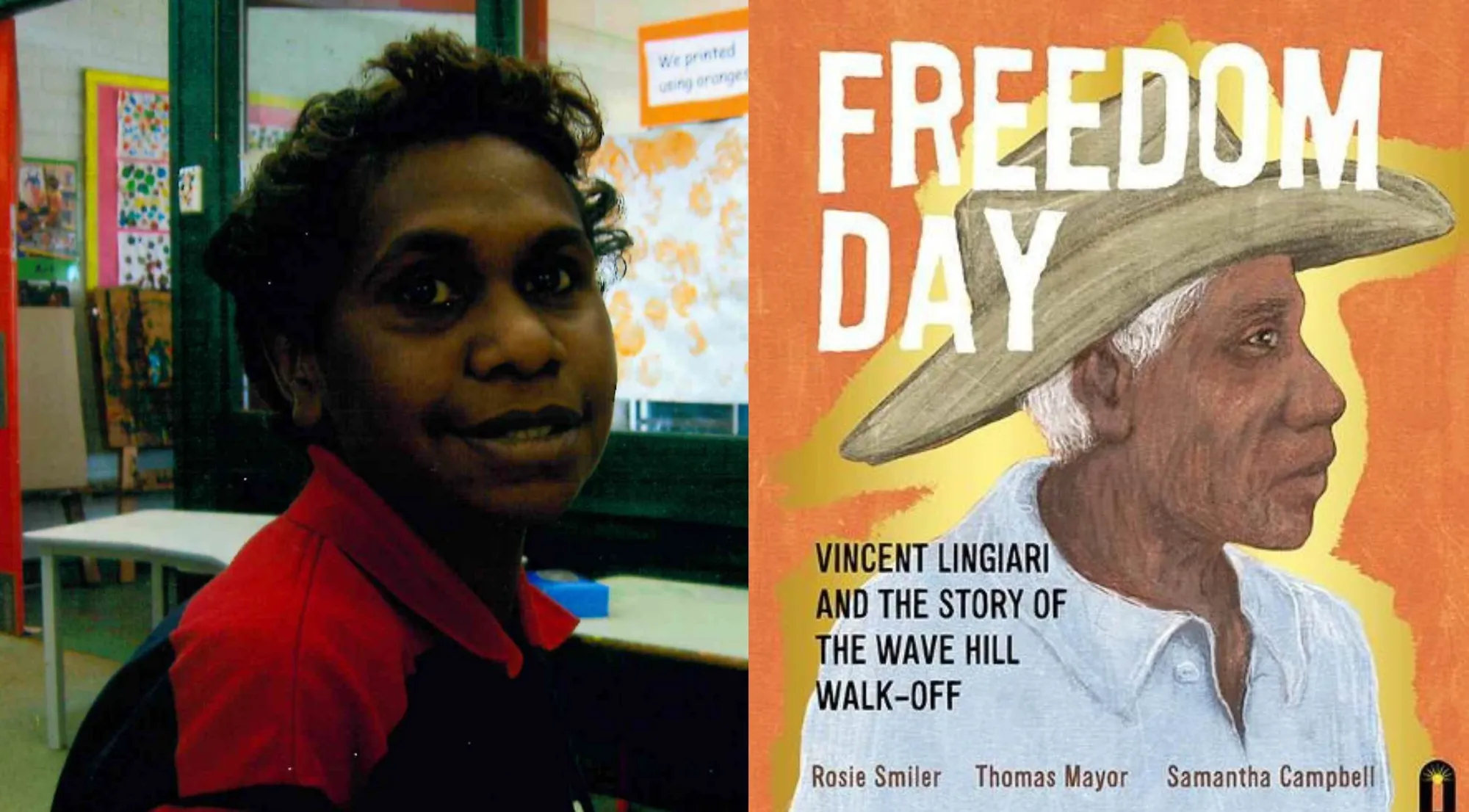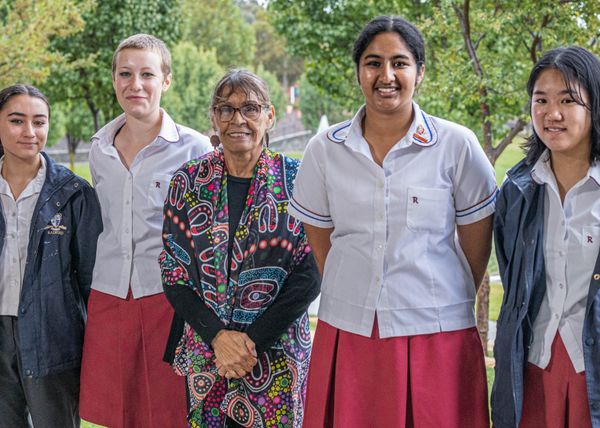Reflections on the Referendum
Mr Andy Gordon, Acting Principal and Rev. Dr Katherine Rainger, Senior Chaplain
"In 1967 we were counted, in 2017 we seek to be heard. We leave base camp and start our trek across this vast country. We invite you to walk with us in a movement of the Australian people for a better future" - Uluru Statement from the Heart.
On 14 October, Australians will vote in a referendum to alter the Constitution to recognise the First Peoples of Australia by establishing an Aboriginal and Torres Strait Islander Voice.
As outlined in the Voice Principles, this body will give independent advice to the parliament and government. It will further the self-determination of Aboriginal and Torres Strait Islander peoples by giving them a greater say on matters that affect them.
As we engage with the discussion and debate, it is helpful to return to the question being asked and the changes to the Constitution that are being proposed.
What is the question for the Voice referendum?
The question that will be put to the Australian people at the 2023 referendum will be:
“A Proposed Law: to alter the Constitution to recognise the First Peoples of Australia by establishing an Aboriginal and Torres Strait Islander Voice.
Do you approve this proposed alteration?”
What is the proposed change to the Constitution?
The proposed law that Australians are being asked to approve at the referendum would insert the following lines into the Constitution:
Chapter IX Recognition of Aboriginal and Torres Strait Islander Peoples 129 Aboriginal and Torres Strait Islander Voice In recognition of Aboriginal and Torres Strait Islander peoples as the First Peoples of Australia: i. There shall be a body, to be called the Aboriginal and Torres Strait Islander Voice; ii. The Aboriginal and Torres Strait Islander Voice may make representations to the Parliament and the Executive Government of the Commonwealth on matters relating to Aboriginal and Torres Strait Islander peoples; iii. The Parliament shall, subject to this Constitution, have power to make laws with respect to matters relating to the Aboriginal and Torres Strait Islander Voice, including its composition, functions, powers and procedures.
The Process to a Voice
Rev. Katherine Rainger writes:
I remember driving out of the car park of St Mark’s National Theological Centre on the afternoon of 26 May 2017. I was listening to the radio and nearly had to pull over as I was so elated by what I heard.
After 13 regional dialogues, more than 250 First Nations delegates at the Constitutional Convention (convened by the bi-partisan Referendum Council) had released the Uluru Statement from the Heart.
Through dialogue and debate, the delegates created a meaningful way to enact constitutional recognition. Rather than assenting to a model of constitutional recognition that was already decided, something new and with profound potential for positive change over the short-, mid-, and long-term had emerged.
Australia already voted in a referendum in 1999 that would symbolically recognise Aboriginal and Torres Strait Islander peoples in a new preamble of our Constitution. This proposed change did not pass.
This time around, after widespread and well-informed consultation on the issue of constitutional recognition amongst First Nations people, a different proposal is being offered.
If we are going to recognise First Nations people in the Constitution and we ask what this recognition should look like, it makes sense that the form of recognition that is requested is given serious consideration.
The Uluru Statement website outlines the history and in-depth processes that have led to the proposed referendum. There is also an informative FAQ section about the Voice.
Walking Together
83% of First Nations peoples support a voice because they know the difference it will make.
Prior to working at Radford, I worked at Kalkaringi Community Education Centre in the Northern Territory for three years. My co-educator in the preschool was Rosie Smiler, a Gurindji woman.
Rosie is the granddaughter of Vincent Lingiari, one of the leaders of the Wave Hill walk-off that began the land rights movement in Australia. The story of Vincent Lingiari is told in Kev Carmody and Paul Kelly’s ballad From Little Things Big Things Grow.
Rosie has co-written a children’s book about the walk-off called Freedom Day.

After telling the story of the walk-off, the book turns to present-day struggles for self-determination and concludes with the following words:
"Our voice should be in the rule book [the Constitution] - as it should have been long ago. The Uluru Statement is an invitation to all Australian people to walk with us, like you, our mates, walked with us Gurindji before.”
Local voices, including Ngunnawal Elder Aunty Violet Sheridan, agree. Aunty Violet is asking Australians from all backgrounds to “stand with us” to make the change for a better future, a more reconciled future with better opportunities and outcomes for First Nations communities through “people there to sit at the table.”
Mr Andy Gordon writes:
On the weekend, an estimated 200,000 Australians joined a national ‘Walk for Yes’ across the country in a show of support for the recognition of First Nations people in the Constitution. This collective outpouring of support expresses a collective desire for justice and hope.
May the Radford College values of truth, compassion and wisdom guide each of us as we carefully consider the question and opportunities before us.
For additional reflections on the referendum, see here and here.
